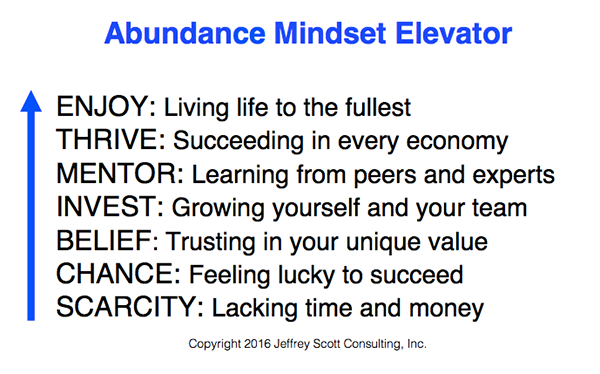As I travel the world talking with landscape contractors in Canada, the U.S., Bermuda and Europe, I find some common themes for both success and barriers to success. While it’s common to blame the government, elections and others for a poor economy and bad policies, there are still landscape entrepreneurs succeeding. Conversely, there are entrepreneurs held back by their own head trash.
Here are some common myths and head trash, along with ways to overcome them:
Myth: Not enough hours in the day
My experience is that workaholics and nose-to-the-grindstone entrepreneurs treat work like an ocean, always letting it seep in to fill in the empty holes in their schedules. There is always more work, so the key to work/life balance is creating priorities. Thus, it’s more of a mental exercise than a business problem. Owners who have been able to create free time, have done so because they will it into their schedules. They surround themselves with talented managers, delegate responsibilities, trust others with decision-making and turn off their phones during personal time. They are macromanagers, not micromanagers.
Reality: Work/life balance is about discipline. You must create your free time.
Myth: Too much competition
Recently, I took on a client from Indiana who compared himself to all his competitors. He claimed that he could not charge more because the market would not allow it. He closed 30 percent of his bids and said that was average. He kept comparing himself to others, and it became proof that he could not do better. His head was full of trash.
Reality: Compare yourself to just yourself. Focus on what makes you special, and spend time building deeper relationships with clients who want what you have to sell. In the end, the biggest competition is the person staring back at you when you look in the mirror. Stop worrying about what the cheaper competition is doing; they could be on the verge of bankruptcy.
Myth: Not enough money
Entrepreneurs who don’t have enough money never seem to earn enough. They focus on saving money—not spending money—eking out a living, and investing minimally in their own learning and that of their team. They have a scarcity mentality. They tend to want to boot strap themselves without help from others. They are afraid or they simply don’t know better.
Reality: An abundance mindset creates wealth. Entrepreneurs who are able to grow their businesses fastest, and with the most success, have an abundance mentality. They see the world as their oyster, invest in constant learning and look for opportunities to expand their knowledge, skill base and inner circle. They enjoy life and expect to enjoy life.
 Jeffrey’s Breakthrough Idea:
Jeffrey’s Breakthrough Idea:
Success starts with an abundant mindset: believing and investing in yourself and surrounding yourself with like-minded people. To speed up your success, move as quickly as you can up the abundance mindset elevator.
Take action:
- Review who is in your inner circle, and determine if you are surrounding yourself with enough abundance thinkers and doers.
- Identify if your company’s leadership team is staffed with abundance thinkers and doers? If it’s not, take appropriate action to fill the ranks with abundance-minded leaders and potential leaders.

